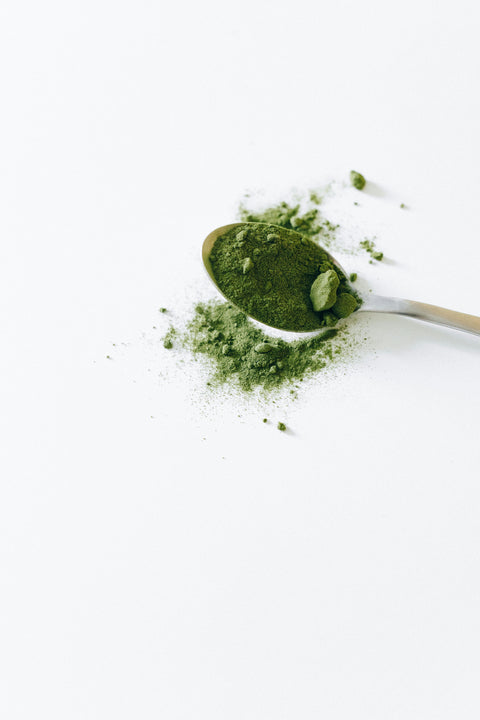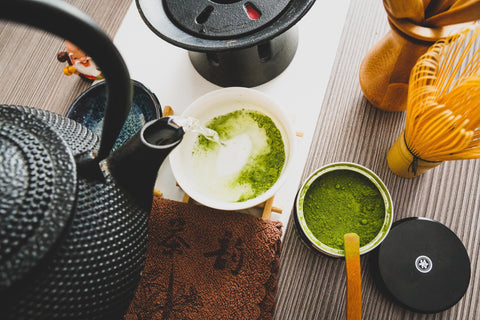
Matcha has long been associated with focus and calm, thanks to its unique combination of nutrients. Recent scientific studies are shedding light on how matcha can actively support brain health, making it more than just a wellness trend.

The Caffeine + L-Theanine Effect
Matcha naturally contains both caffeine and an amino acid called L-theanine. Together, they:
-
Promote calm alertness
-
Improve focus without jitters
-
Enhance mood and mental clarity
Research shows that the combination of caffeine and L-theanine improves attention and reduces mental fatigue (Owen et al., 2008).
Antioxidants for the Brain

The high levels of EGCG in matcha also benefit the brain. EGCG has been shown to protect neurons against oxidative damage and support learning and memory functions (Mandel & Youdim, 2004).
Matcha and Stress Reduction

L-theanine stimulates alpha brain waves, which are linked to relaxation and creativity. Studies indicate that L-theanine may reduce stress while improving cognitive performance (Nobre et al., 2008).
Emerging Research
Early research suggests that regular consumption of matcha and green tea:
-
May reduce the risk of neurodegenerative diseases such as Alzheimer’s and Parkinson’s (Kuriyama et al., 2006)
-
Can improve working memory and attention in both younger and older adults (Camfield et al., 2014)
How to Incorporate Matcha for Brain Health
-
Start your morning with a hot usucha for calm focus
-
Replace your afternoon coffee with a matcha latte for sustained energy
-
Try iced matcha for a refreshing, brain-boosting drink on hot days
Matcha is more than just a trendy drink — it’s a science-backed ally for brain health. From improved focus to potential long-term protection, matcha fits seamlessly into a modern lifestyle that values both performance and well-being.
Forest Cloud’s matcha is carefully sourced for purity and quality, making it the ideal choice for those who want both flavour and function in every cup.
References
-
Camfield, D. A., et al. (2014). Acute effects of tea constituents L-theanine, caffeine, and epigallocatechin gallate on cognitive function and mood: A systematic review and meta-analysis. Nutritional Neuroscience, 17(6), 272–283.
-
Kuriyama, S., et al. (2006). Green tea consumption and cognitive function: A cross-sectional study from the Tsurugaya Project. American Journal of Clinical Nutrition, 83(2), 355–361.
-
Mandel, S., & Youdim, M. B. (2004). Catechin polyphenols: neurodegeneration and neuroprotection in neurodegenerative diseases. Free Radical Biology and Medicine, 37(3), 304–317.
-
Nobre, A. C., Rao, A., & Owen, G. N. (2008). L-theanine, a natural constituent in tea, and its effect on mental state. Asia Pacific Journal of Clinical Nutrition, 17(Suppl 1), 167–168.
Owen, G. N., et al. (2008). The combined effects of L-theanine and caffeine on cognitive performance and mood. Nutritional Neuroscience, 11(4), 193–198.





